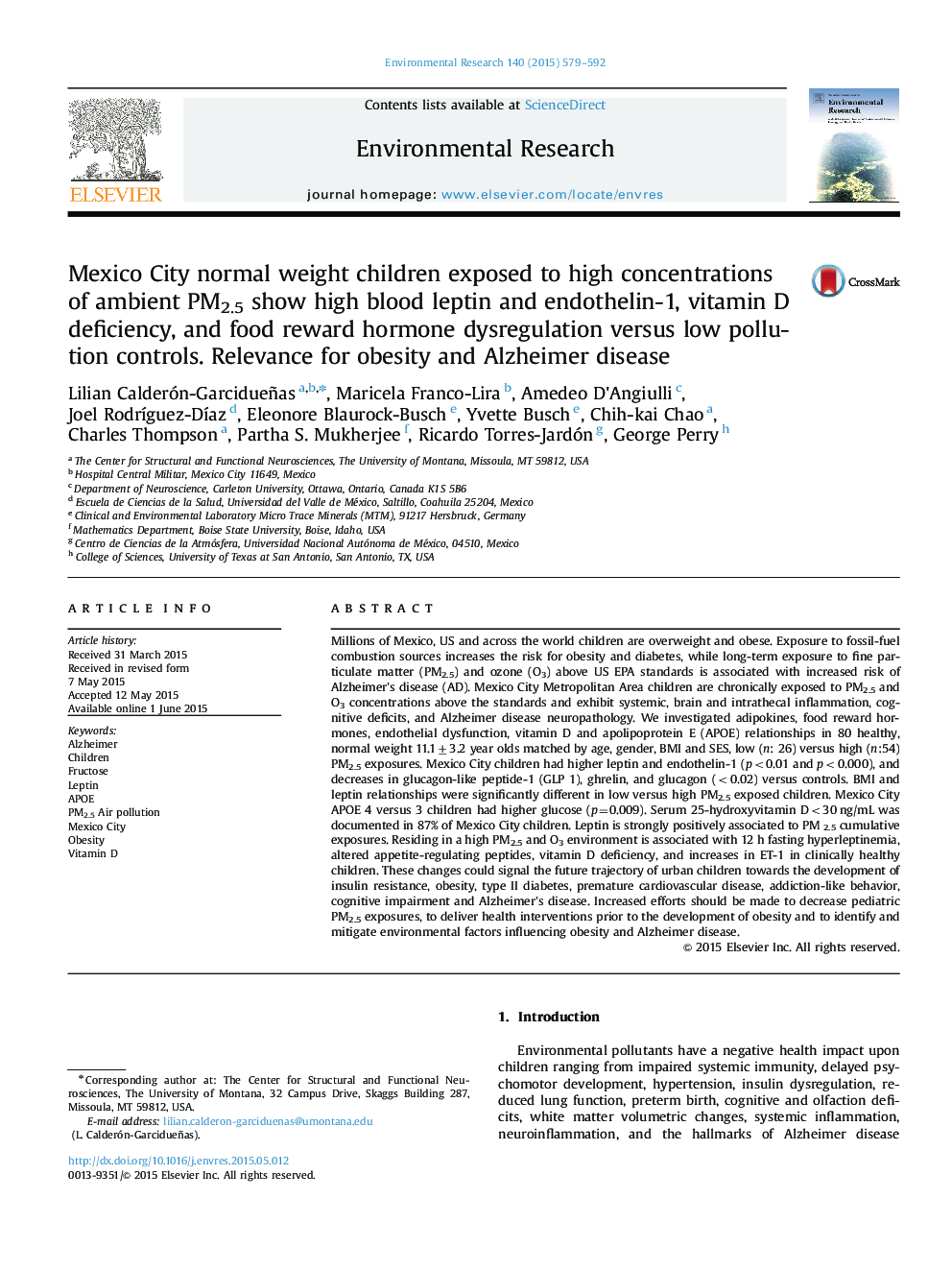| کد مقاله | کد نشریه | سال انتشار | مقاله انگلیسی | نسخه تمام متن |
|---|---|---|---|---|
| 6351956 | 1622561 | 2015 | 14 صفحه PDF | دانلود رایگان |

- Mexico City air pollution causes systemic and neural inflammation in children.
- Normal weight Mexico City children show fasting hyperleptinemia.
- Hyperleptinemia is strongly positively associated to PM2.5 exposures.
- Hyperleptinemia could signal the metabolic and cognitive trajectory of children.
Millions of Mexico, US and across the world children are overweight and obese. Exposure to fossil-fuel combustion sources increases the risk for obesity and diabetes, while long-term exposure to fine particulate matter (PM2.5) and ozone (O3) above US EPA standards is associated with increased risk of Alzheimer's disease (AD). Mexico City Metropolitan Area children are chronically exposed to PM2.5 and O3 concentrations above the standards and exhibit systemic, brain and intrathecal inflammation, cognitive deficits, and Alzheimer disease neuropathology. We investigated adipokines, food reward hormones, endothelial dysfunction, vitamin D and apolipoprotein E (APOE) relationships in 80 healthy, normal weight 11.1±3.2 year olds matched by age, gender, BMI and SES, low (n: 26) versus high (n:54) PM2.5 exposures. Mexico City children had higher leptin and endothelin-1 (p<0.01 and p<0.000), and decreases in glucagon-like peptide-1 (GLP 1), ghrelin, and glucagon (<0.02) versus controls. BMI and leptin relationships were significantly different in low versus high PM2.5 exposed children. Mexico City APOE 4 versus 3 children had higher glucose (p=0.009). Serum 25-hydroxyvitamin D<30 ng/mL was documented in 87% of Mexico City children. Leptin is strongly positively associated to PM 2.5 cumulative exposures. Residing in a high PM2.5 and O3 environment is associated with 12 h fasting hyperleptinemia, altered appetite-regulating peptides, vitamin D deficiency, and increases in ET-1 in clinically healthy children. These changes could signal the future trajectory of urban children towards the development of insulin resistance, obesity, type II diabetes, premature cardiovascular disease, addiction-like behavior, cognitive impairment and Alzheimer's disease. Increased efforts should be made to decrease pediatric PM2.5 exposures, to deliver health interventions prior to the development of obesity and to identify and mitigate environmental factors influencing obesity and Alzheimer disease.
Journal: Environmental Research - Volume 140, July 2015, Pages 579-592